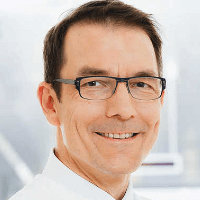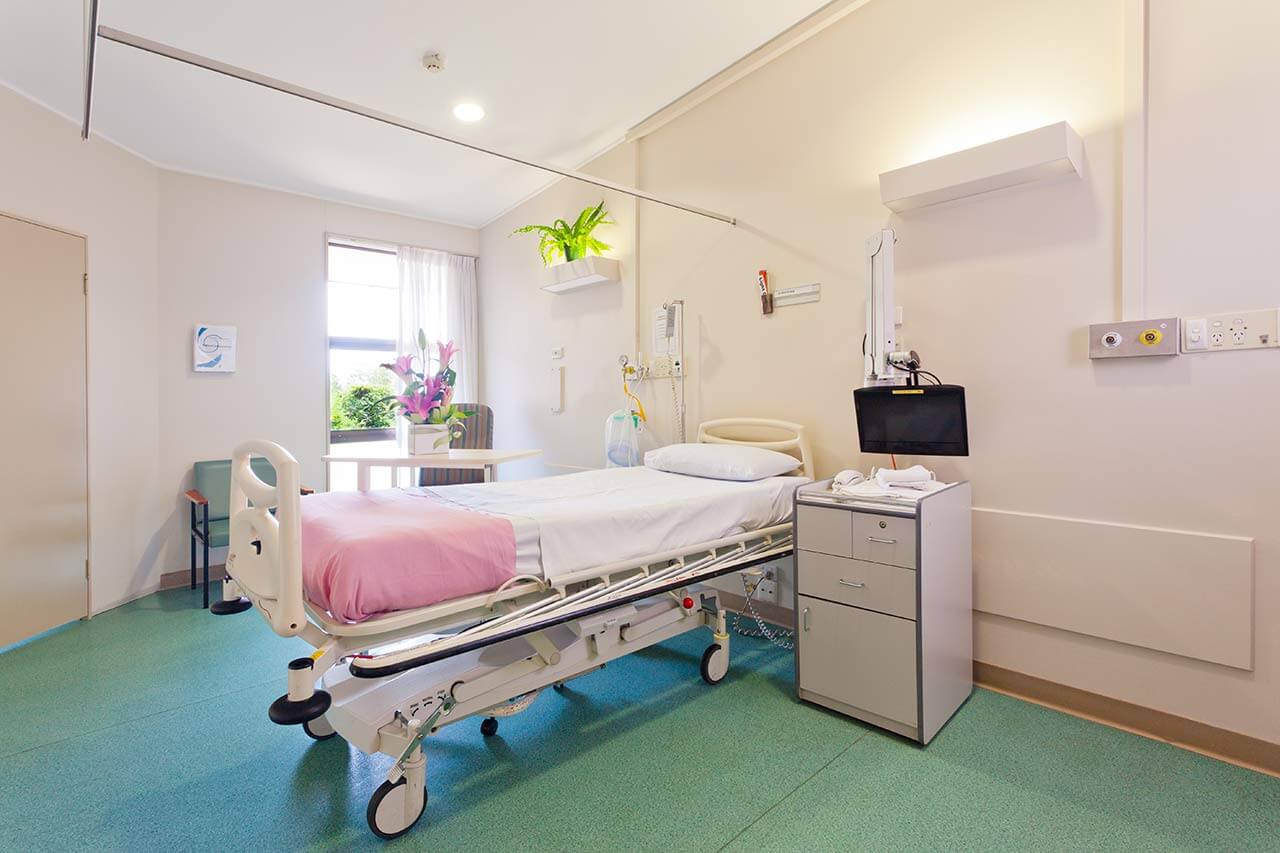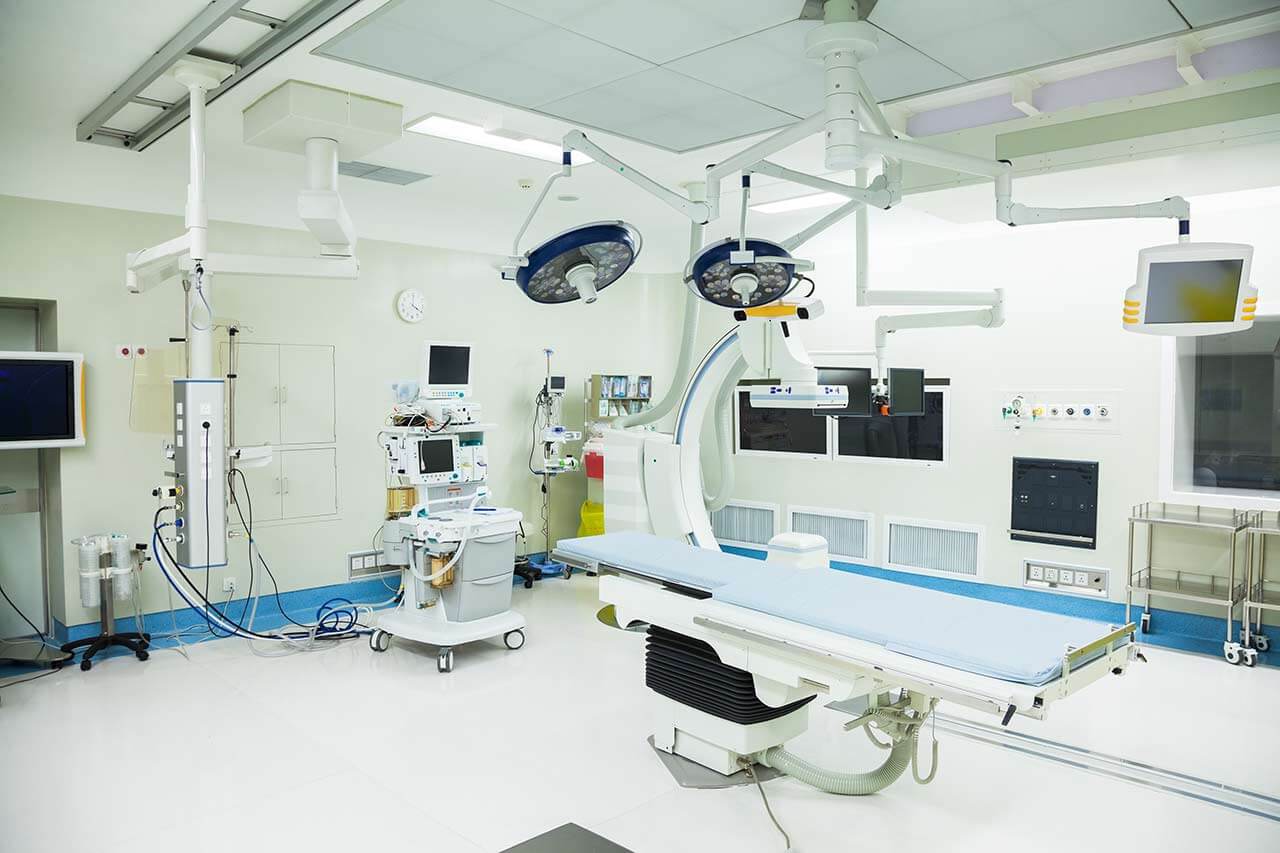
About the Department of Pulmonology at Hospital Bogenhausen Munich
The Department of Pulmonology at the Hospital Bogenhausen Munich offers all the options of modern medicine for the diagnostics and treatment of various diseases of the lungs and respiratory tract. One of the most important focuses of pulmonologists' work is lung cancer treatment. In this field, the department is certified in accordance with the standards of the German Cancer Society, which indicates the excellent quality of lung cancer treatment. Of particular interest is also the therapy of inflammatory diseases of the bronchi, lungs and pleura, for example, chronic obstructive pulmonary disease and pulmonary emphysema. The department's specialists can boast of a special competence in the treatment of interstitial lung diseases, pulmonary circulation disorders, respiratory muscle weakness and sleep-related breathing disorders. To provide comprehensive medical care, the doctors cooperate closely with thoracic surgeons. The department annually provides treatment to more than 3,000 patients, and each of them receives tailored treatment of the highest European level. The Chief physician of the department is Prof. Dr. med. Joachim Meyer.
The success of treatment of any disease largely depends on the accuracy of the diagnostics. Lung and respiratory tract diseases are no exception. Since the symptoms in many lung diseases are quite similar (cough, shortness of breath, mucous discharge from the bronchi, pain, fever, etc.), the department's doctors usually carry out differential diagnostics, which helps to determine the exact etiology of the disease and develop the most effective treatment regimen. The diagnostic options of the department include bronchoscopy, rest and stress pulmonary function testing, provocative tests for suspected allergies, microbiological laboratory tests, imaging studies, including radiography, computed tomography, magnetic resonance imaging and positron emission tomography.
The department's key specialization is the treatment of lung cancer, the diagnosis of which is complicated by the fact that the patient has no symptoms until the tumor reaches a large size. A clinical case of the patient with confirmed lung cancer is considered at an interdisciplinary tumor board with the participation of pulmonologists, radiologists, thoracic surgeons, radiation therapists, chemotherapists and other specialists. Each treatment regimen is unique and is elaborated according to the particular clinical indications of the patient, taking into account the current protocols of the German Cancer Society. As a rule, three treatments are mostly used for lung cancer.These include surgical resection of the tumor (if possible, sparing thoracoscopic surgery), chemotherapy and radiation therapy. However, the surgical technique, the dose and duration of irradiation and the intensity of chemotherapy are determined depending on the particular clinical case and the patient's needs. The department also successfully uses innovative treatment methods, such as laser therapy, cryotherapy, chemoembolization and radiofrequency ablation. The treatment often takes place on an outpatient basis, so there is no need for the patient to constantly stay in the department. The patients with incurable lung cancer receive palliative care to relieve symptoms and improve quality of life. As a rule, it is difficult for the patients to accept their cancer diagnosis and to cope with emotional distress on their own. Therefore, both patients and their relatives receive support from the experienced psychologists. They are always ready to listen and help the patients and their close ones to go through the therapeutic process.
Chronic obstructive pulmonary disease and pulmonary emphysema are also common pathologies in the clinical practice of the department's pulmonologists. Functional diagnostics allow the specialists to assess the extent of lung lesion. Since it is usually not possible to restore the affected areas of the lungs, the goal of therapy is to relieve symptoms, improve physical endurance and quality of life. The treatment is based on the use of modern drugs and inhalation therapy. Physiotherapy is used as an additional treatment method. In addition, quitting smoking is part of the treatment, if the patient has this addiction. The department offers effective smoking cessation programs, which allow the patient to quit smoking once and for all. To treat severe pulmonary emphysema, the department's specialists perform endoscopic therapeutic procedures, for example, endoscopic lung volume reduction.
It should be noted that the department's medical team has long experience in the treatment of pneumonia and pleurisy. When admitted to the department, the patient undergoes comprehensive diagnostics, which includes laboratory tests, radiography, ultrasound examinations and computed tomography. In some cases, bronchoscopy can also be required. The doctors most often manage to achieve complete recovery of the patient after pneumonia or pleurisy by using antibiotics. In the case of abscesses, acute pulmonary failure and other complications, thoracic surgeons are involved in the therapeutic process. In addition, the department successfully performs extracorporeal therapeutic procedures and non-invasive ventilation.
The department specializes in the diagnostics and treatment of the following diseases of the lungs and respiratory tract:
- Lung cancer
- Chronic obstructive pulmonary disease
- Pulmonary emphysema
- Pneumonia
- Pleurisy
- Pulmonary fibrosis
- Pulmonary hypertension
- Interstitial lung diseases
- Pulmonary circulatory disorders
- Respiratory muscle weakness
- Sleep-related breathing disorders (focus on obstructive sleep apnea)
- Other diseases
The department's range of medical services includes:
- Diagnostics
- Bronchoscopy
- Rest and stress pulmonary function testing
- Laboratory tests, including microbiological tests and provocative tests for suspected allergies
- Ultrasound
- X-ray
- Computed tomography
- Magnetic resonance imaging
- Positron emission tomography
- Therapy
- Drug therapy
- Chemotherapy, radiation therapy, laser therapy, cryotherapy, chemoembolization, radiofrequency ablation and palliative care for lung cancer
- Endoscopic therapeutic procedures (for example, lung volume reduction)
- Extracorporeal therapeutic procedures
- Inhalation therapy
- Non-invasive ventilation
- Other diagnostic and therapeutic options
Curriculum vitae
Prof. Dr. med. Joachim Meyer received his medical education at the educational institutions of Essen-Heidhausen, London and Heidelberg. Since 2010, he has been Head of the Department of Pulmonology at the Hospital Harlaching Munich. In 2013, the specialist was also appointed Chief Physician of the Department of Pulmonology at the Hospital Bogenhausen Munich.
Prof. Joachim Meyer's clinical and research interests include interventional bronchoscopy, spiroergometry and assessment of the pulmonary circulation. Of particular interest to him is also mechanical ventilation, extracorporeal membrane oxygenation and sepsis treatment.
Photo of the doctor: (c) München Klinik Bogenhausen




